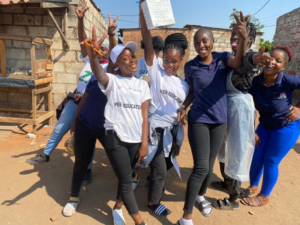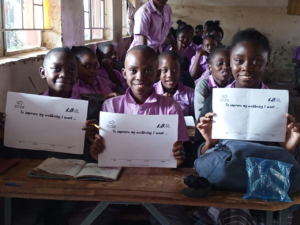

Navigating Cultural Barriers: Ensuring Comprehensive Reproductive Health Services and Rights for Women in Zambia
In Zambia, as in many parts of the world, the discourse surrounding access to comprehensive sexual reproductive health and rights (SRHR) commodities and services is deeply entwined with cultural beliefs, norms, and societal values. These cultural and societal factors can create significant resistance for clients and patients, particularly adolescent girls and young women SRHR services. Here’s a closer look at some of the key cultural barriers young women face:
- Silence and Stigma:Open discussions about sex and sexuality are often considered taboo. This silence can lead to misinformation, shame, and fear associated with SRHR services. Young women might feel judged or ostracized for seeking these services.
- Traditional Gender Roles:Cultural norms often emphasize female submissiveness and prioritize childbearing. This can discourage young women from seeking contraception or information about family planning, as it may be seen as conflicting with their expected role.
- Power Dynamics and Parental Control:In some cultures, young women have limited autonomy and may require parental consent to access sexual and reproductive health services. This can be a major obstacle, especially if parents hold traditional views or disapprove of their daughters seeking such information or services.
- Religious Beliefs:Certain religious teachings may oppose contraception or abortion, leading to moral and ethical conflicts for adolescent girls and young women seeking these services.
These cultural barriers not only limit access to vital health information and services but also contribute to:
- High Rates of Unintended Pregnancy:Lack of access to contraception can lead to unintended pregnancies, impacting a young woman’s education, future prospects, and overall well-being.
- Increased Vulnerability to Sexually Transmitted Infections (STIs):Without access to information and preventive measures, young women remain vulnerable to STIs, including HIV/AIDS.
The good news is that there are ways to break down these cultural barriers and societal norms to ensure young women have access to SRHR commodities and services. Some of these are:
Human Rights Perspectives: Access to reproductive health services is a fundamental human right. International human rights frameworks, such as the Universal Declaration of Human Rights and the Convention on the Elimination of All Forms of Discrimination Against Women (CEDAW), assert that women have the right to make decisions about their reproductive health free from discrimination, coercion, and violence. Advocating for women’s reproductive rights from a human rights perspective involves challenging restrictive laws and addressing cultural and religious beliefs that infringe upon these rights
Community Engagement: Engaging with local communities, including leaders and influencers, is crucial for breaking cultural barriers. Open and respectful dialogue about reproductive health and rights helps build trust, dispel myths, and reduce stigma, increasing acceptance of comprehensive reproductive health services.
Education and Awareness: Comprehensive reproductive health education provides accurate information about contraception and pregnancy options, empowering women to make informed decisions. Education initiatives should also target men and boys to foster a supportive environment for women’s reproductive choices.
Healthcare Provider Training: Healthcare providers need training and resources to deliver high-quality care non-judgmentally and compassionately. Creating a supportive healthcare environment ensures women feel comfortable seeking reproductive health services without fear of discrimination or mistreatment.
In conclusion, providing comprehensive reproductive health services is fundamental to women’s rights and health. However, cultural influences in Zambia shape attitudes, posing significant challenges to access and acceptance. Addressing these challenges requires a multi-faceted approach that respects cultural diversity while advocating for women’s rights to access comprehensive services. Through concerted efforts to challenge stigma, promote education, and empower women, we can ensure that every woman can make safe and informed decisions about her reproductive health and well-being.
By Bibian Chibelushi


